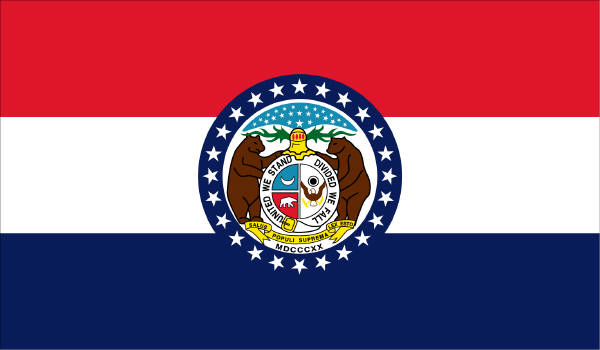The Missouri State Legislature took the final vote on May 17 to send a constitutional amendment to voters this Nov. that would prohibit non-citizen voting and the use of ranked-choice voting (RCV) in elections.
In November, Iowa, Kentucky, South Carolina, and Wisconsin, along with Missouri, will have measures on their ballots concerning citizenship voter requirements. These measures were introduced by Republican-controlled state legislatures in all five states. Similar measures were approved in six other states—Louisiana (2022), Ohio (2022), Florida (2020), Alabama (2020), Colorado (2020), and North Dakota (2018). All were approved with at least 62% of the vote.
The constitutional amendment would also provide that each voter has one vote per issue or open seat, prohibit the ranking of candidates (RCV), and require primary elections in which only one candidate from each political party, the one who receives the most votes, advances to the general election. These electoral system provisions would not apply to any nonpartisan municipal election system that is in effect as of Nov. 5, 2024, such as St. Louis, where approval voting is used.
Nine states have enacted laws to ban the use of ranked-choice voting statewide. The first to do so was Tennessee in March 2022. It was followed by Florida, Idaho, South Dakota, Montana, Kentucky, Oklahoma, Alabama, and Mississippi, in that order. If approved, Missouri would be the first state to enact an RCV ban via ballot measure.
Ranked-choice voting is used statewide in Alaska, Hawaii, and Maine and was enacted by the approval of citizen initiatives. Another 14 states contain localities that either use or are scheduled to begin using RCV in municipal elections. In November, Nevada and Oregon will decide on adopting the system, and Alaska voters will decide on repealing the system after adopting it in 2020.
A simple majority vote is required during one legislative session for the Missouri General Assembly to place a constitutional amendment on the ballot. The amendment was introduced as Senate Joint Resolution 78 (SJR 78). The state Senate approved it on April 9 by a party-line vote of 24-9. The House approved it by a vote of 97-43, with two not voting on May 17.
Sen. Ben Brown (R-26), who introduced the amendment, said, “While rank choice voting may appear as modern solution [to] electoral dilemmas, evidence and experience have illuminated a starkly different reality.”
Missouri voters will decide on three other legislatively referred constitutional amendments that address:
- Allowing the legislature to pass a law requiring Kansas City to increase funding for the Kansas City Police Department;
- Authorizing a property tax exemption for childcare establishments; and
- Authorizing the levying of fees to fund salaries and benefits for law enforcement personnel.
Additional reading:


